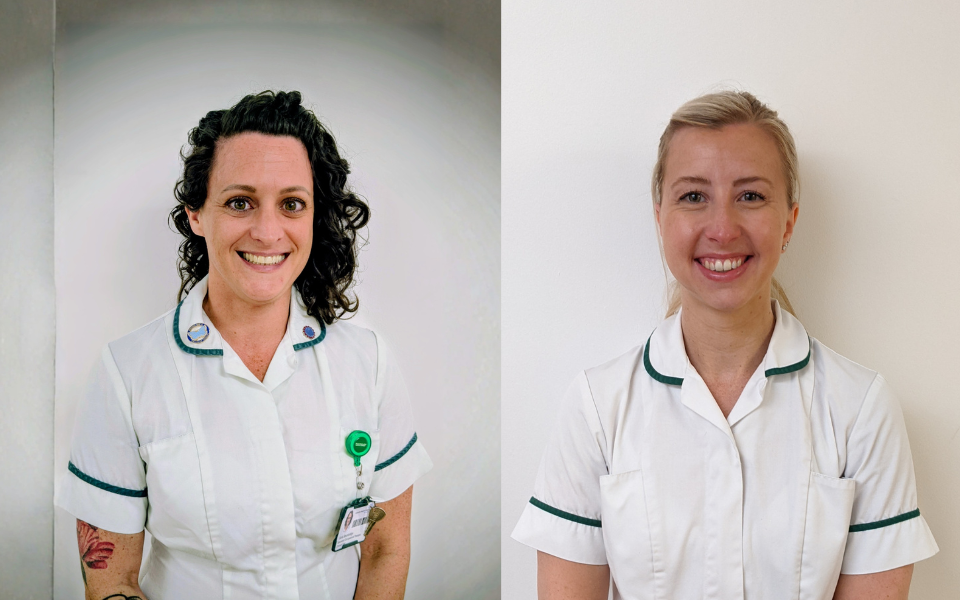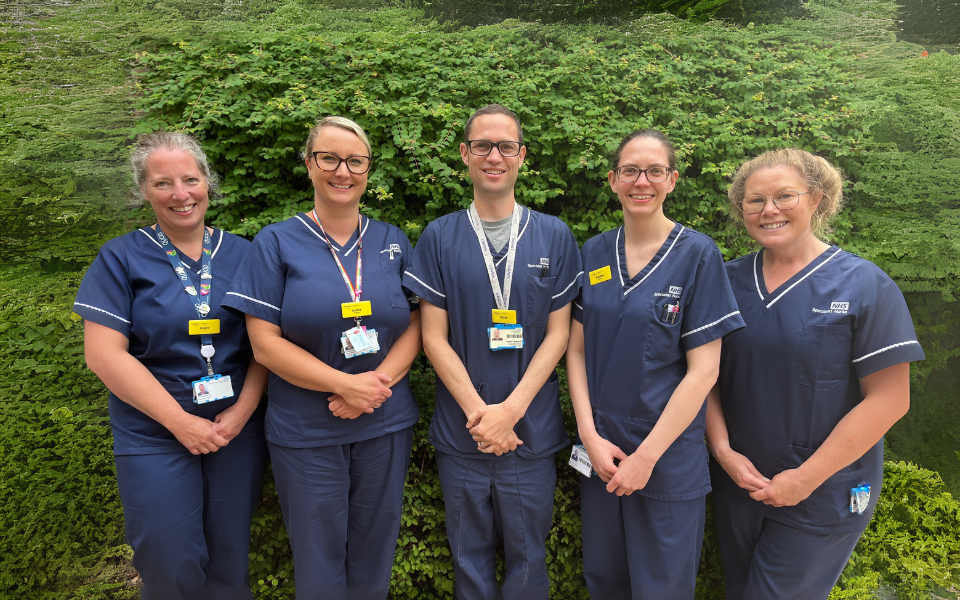
Nursing
Turning Loss into Legacy: Why Our Specialist Nurses Champion Organ Donation
Every day, lives are saved because someone made the courageous decision to give the gift of life. Behind each of these life-changing moments is a team of dedicated professionals who walk alongside families during some of their most difficult hours, our Specialist Nurses for Organ Donation.
At University Hospital Southampton (UHS), these nurses are more than healthcare professionals. They are advocates, listeners, and guides. They ensure that every donor’s final act is honoured with dignity, and that every family is supported with compassion. In this blog, we hear from Lottie (Photo: centre left), Rachel (Photo: centre right), and Claire (Photo: far left), three of our incredible Specialist Nurses, as they reflect on what inspired them to pursue this path, what organ donation means to them personally, and the impact they strive to make every day.
Their words remind us that every act of kindness, every decision to help, can spark hope, and that together, we can create a future full of second chances.
What drew you to work in a role that involves organ donation and transplantation?
Lottie, Specialist Nurse for Organ Donation: Having cared for many donors and their families on the Neonatal Intensive Care Unit (NICU) and General Intensive Care Unit (GICU), I knew I wanted to work in the field so that I could provide solace to families during this time and help be part of saving lives through donation and transplantation.
Rachel, Specialist Nurse for Organ Donation: I have always been passionate about providing patient-centred end of life care and attended a study day that inspired me to learn more about the life-saving gift of organ donation and how this can be part of someone’s end of life journey.
Claire, Specialist Nurse for Organ Donation: I previously worked in ICU caring for patients who went on to donate, and helped support their families at this time. Seeing something positive in what were often traumatic circumstances helped me personally as a nurse, and being able to support families at these times was hugely rewarding.
What does organ donation mean to you personally, and why do you support it?
Lottie : For me, it is about getting end-of-life care right for our patients and their families and through this, creating legacies for those donors. I feel honoured and privileged that I can support families and patients making memories during this time and help honour their decision.
Rachel: I believe that organ donation is the opportunity to turn an end into a beginning, to give the ultimate gift – the gift of life.
Claire: Organ donation can produce hope and positivity from experiences that are very difficult, and this has been a source of inspiration to me.
What inspired you to become an advocate for organ donation? Was there a moment or experience that made organ donation feel especially important to you?
Lottie: What inspired me was mainly my answer to the first question, supporting donors and their families in the NICU and GICU.
Rachel: I don’t think that there was a particularly defining moment, more just the understanding that someone at the end of their life can do something truly amazing and save the life of another. The ability to change someone else’s story when yours is reaching the final chapter is an analogy that a donor family once used and that has really resonated with me.
Claire: I vividly remember caring for a particular patient who went on to become a donor. She was young, the circumstances were tragic and her family were distraught. Seeing the glimmer of hope that her family felt from the fact she could go on to help others, in the midst of their grief, was very powerful to me and positively influenced my personal feelings about organ and tissue donation.
If you could say one thing to someone unsure about joining the organ donor register, what would it be?
Lottie: You can save lives and create a legacy when you are not here through organ donation. But also, if organ donation is not right for you, that is also OK. We want this decision to be about what you would like to have happen at your end of life. Please let your loved ones know what you would want to happen when you are not here.
Rachel: It’s really important that you think about your personal donation decision, register that decision and tell your family. Many people feel that they would like to help others at the end of their life, but a significant proportion of those people will not actually have registered that decision or told anyone. How will your family know your decision if you’ve not communicated it in any way? Whatever your donation decision, opt-in or opt-out, please register it on the NHS Organ Donor Register and tell your family. Talking about death and dying doesn’t make it happen, but it’s so important that your family know what’s right for you when the time does come.
Claire: What would you want for your loved ones if they needed an organ transplant?
What does it mean to you to be part of a team that helps save lives through organ donation?
Lottie: I am incredibly lucky to be part of an amazing team at University Hospital Southampton (UHS) and also NHS Blood and Transplant. Supporting donors, families and UHS staff to save the lives of recipients is a privilege and one I do not take for granted. Through great teamwork, we provide excellent end of life care and are part of many journeys.
Rachel: I am so fortunate to be part of such a supportive and dedicated team, who are all passionate about organ donation as part of end of life care. Whilst saving lives through transplant is so important, it is the donor and their family that are at the centre of everything we do and our team are committed to ensuring that we get the end of life care right for them. It’s about so much more than just donation.
Claire: For me it is the families we support who make all the difference, and thanks to their bravery and generosity others can receive the gift of life.
What do you hope people take away from Organ Donation Week?
Lottie: I hope people take away the importance of having conversations with their families about what they want to happen at their end of life. We only get one chance to get this right, so let’s make sure it is spoken about. Becoming an organ donor and giving the gift of life is something that can never be underestimated.
Rachel: I hope that everyone takes just a couple of minutes to think about their personal donation decision, registers that decision on the NHS Organ Donor Register and tells their family. Proactively doing this shows that you took the time to think about what you would want to have happen. You can register your decision via the website (Organ Donation) or the NHS App. Do it now, it’s the best thing you’ll do today.
Claire: Talk to your loved ones, families and friends about your organ donation decision, and record your decision on the Organ Donor Register.
Organ donation is not just a medical act; it’s a deeply human one. It’s about empathy, courage, and the quiet strength of families who say “yes” in the hardest of moments. It’s about the teams who stand beside them, listening, guiding, and ensuring that every donor’s story is honoured with dignity and care.
Behind every successful transplant is a network of professionals working with compassion and precision, from specialist nurses and intensive care staff to porters, administrators, and lab technicians. Each role plays a vital part in turning loss into legacy, and in giving someone else a second chance at life.
If the stories from our Specialist Nurses have sparked something in you, why not explore how you could be part of something bigger? Visit our website here to discover the many career paths at UHS and find where you could make a difference.
Related Blogs
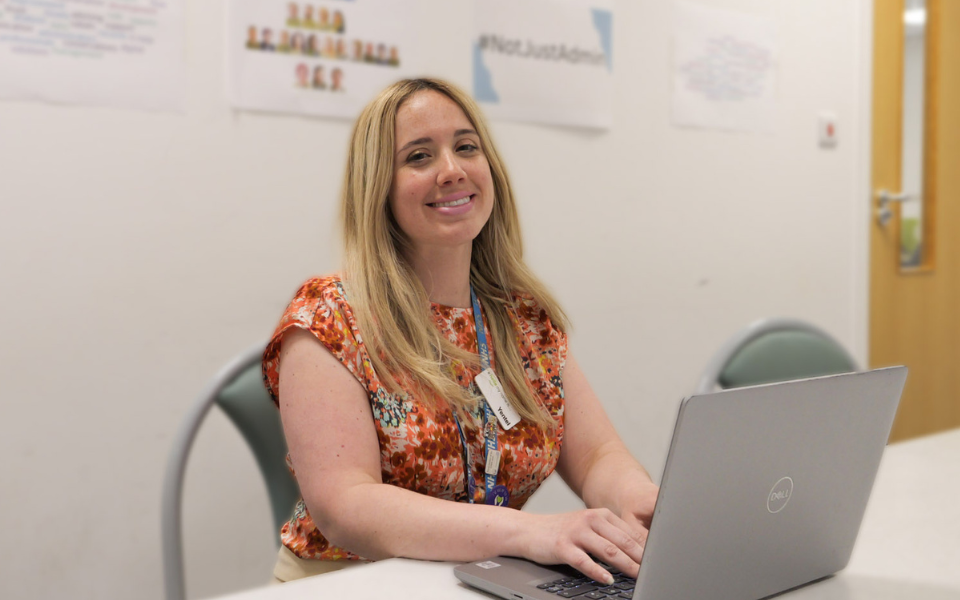
From Sports Coach to NHS Innovator: How Yentel Found Purpose at UHS
More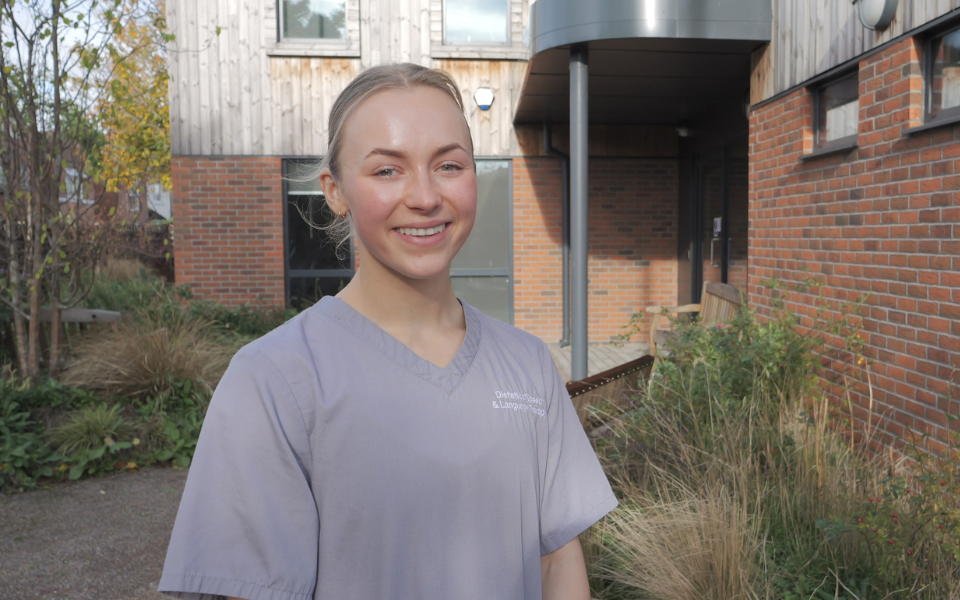
Supporting Newly Qualified Professionals: The Impact of Preceptorship at UHS – Goda’s Story
More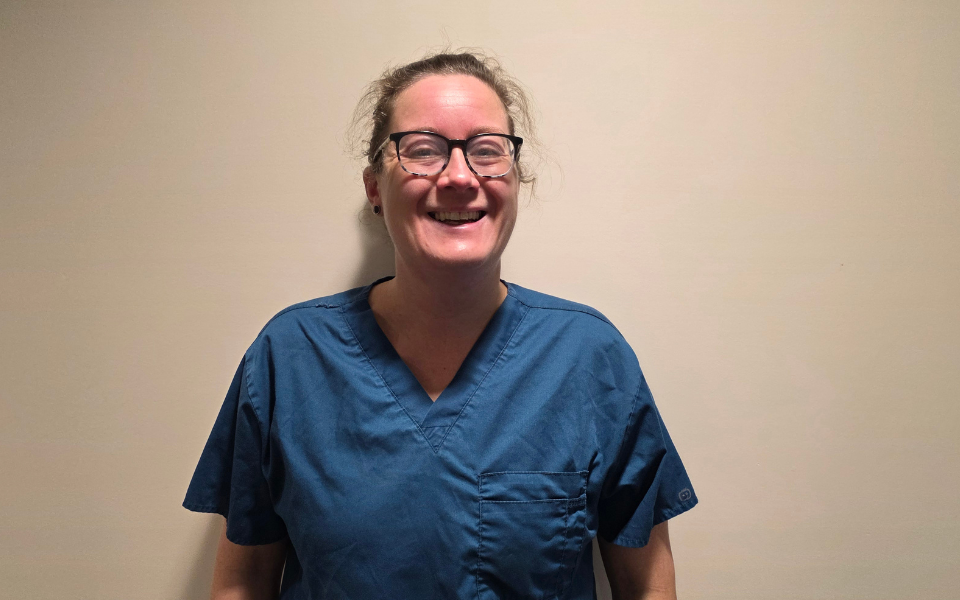
From Childhood Dream to NHS Specialist: Lizzi’s Journey in Pharmacy
More